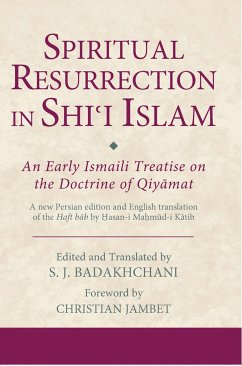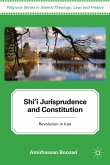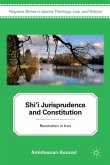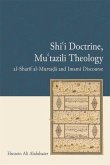I.B.Tauris in association with the Institute of Ismaili Studies Of the few surviving Nizari Ismaili texts from the Alamut period, the Haft bab (Seven Chapters), which outlines the basic tenets of Ismaili philosophical theology, has proved to be the most popular. One of its many attractive features is its simple recounting of the most complicated Ismaili theological narratives, including the doctrine of the Resurrection (qiyamat). Produced around the year 1203, this small treatise was probably intended as an introduction to the Diwan-i Qa'imiyyat compiled by Hasan-i Mahmud-i Katib (d. after 1242). For many years, the Haft bab was misattributed to Baba Sayyidna (Hasan-i Sabbah), but the true author has finally been identified as Hasan-i Mahmud-i Katib, whose works continue to shape our understanding of this important period.The current text of the Haft bab, edited and translated into English by S. J. Badakhchani, is based on Badakhchani's analysis of a great number of manuscripts available, including a complete and unaltered version. The concepts found in the text derive largely from the intellectual heritage of the Fatimids.These include the idea of tanzih (the absolute transcendence of God beyond human understanding and knowledge); a cyclical conception of prophetic history, consisting of seven eras (dawr); the Ismaili Imamate as the most important pillar of Ismaili Islam; and the Qiyamat as the completion and perfection of the religious law (shari'at). The Ismaili interpretation of the Qiyamat is radically different from Qur'anic eschatology in its esoteric formation, spiritual aspiration and imaginative scope. The Haft bab explains this key doctrine of Nizari Ismailism, shedding light on a fundamental period in the history of Shi'i Islam.
Hinweis: Dieser Artikel kann nur an eine deutsche Lieferadresse ausgeliefert werden.
Hinweis: Dieser Artikel kann nur an eine deutsche Lieferadresse ausgeliefert werden.








